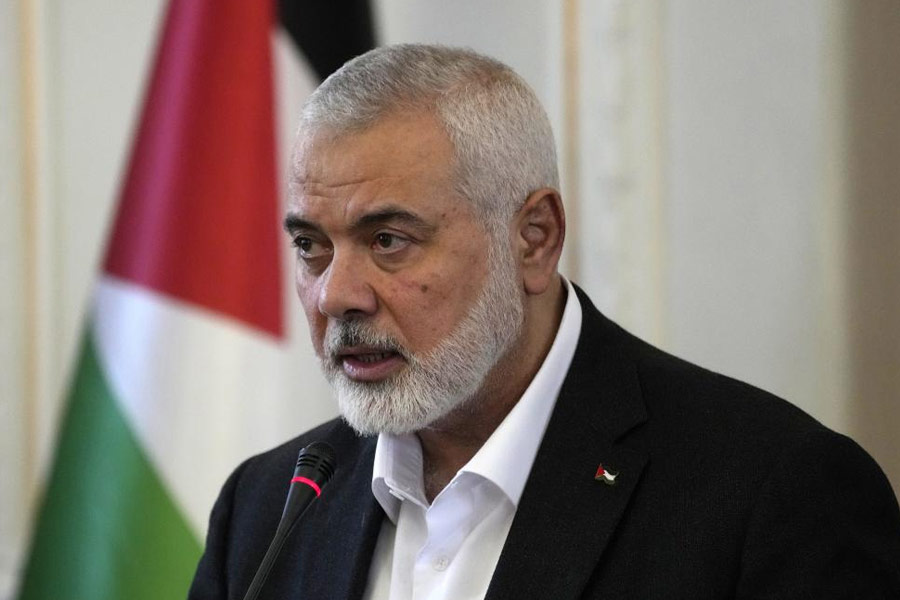Hamas leader Ismail Haniyeh was assassinated early on Wednesday morning in Iran, the Palestinian militant group and Tehran said. This is what we know about the killing of Haniyeh, one of Israel's numerous assassinations of its enemies over the years.
Details of assassination
Iran's Revolutionary Guards confirmed the death of Haniyeh - the face of Hamas's international diplomacy as the war set off by the attack on Israel on Oct. 7 has raged in Gaza.
Haniyeh was killed around 2 a.m. (2200 GMT) on Wednesday, Iranian media reported. He was staying at "a special residence" for war veterans in north Tehran.
"Further investigations are underway that will be announced soon," it said.
NourNews, an outlet affiliated with Iran's Supreme National Security Council, said Haniyeh's residence was hit by an airborne projectile. The assassination was "a dangerous gamble to undermine Tehran's deterrence", it said.
There was no immediate comment from Israel. The Israeli military said it was conducting a situational assessment but had not issued any new security guidelines for civilians.
Possible consequences
Hamas said it would continue the path it was following in the Gaza war, saying: "We are confident of victory."
The prime minister of Qatar, which has acted as a mediator in ceasefire negotiations between Israel and Hamas, suggested that the killing could jeopardise efforts to secure a truce in Gaza.
"Political assassinations and continued targeting of civilians in Gaza while talks continue leads us to ask, how can mediation succeed when one party assassinates the negotiator on other side?" Prime Minister Sheikh Mohammed bin Abdulrahman Al Thani wrote on X.
The news, which came less than 24 hours after Israel claimed to have killed the Hezbollah commander it said was behind a deadly strike in the Israeli-occupied Golan Heights, appears to set back chances of any imminent ceasefire agreement in the Gaza war. At the same time, the risk of a war between Israel and Hezbollah has grown following the strike in the Golan Heights that killed 12 children in a Druze village on Saturday and the subsequent killing of the senior Hezbollah commander Fuad Shukr.
A member of parliament from Iran-backed Lebanese armed group Hezbollah said that his group would be ready to fight a war with Israel, after an Israeli strike on the southern suburbs of Beirut targeted Hezbollah's top military commander.
The attack on Iranian soil and death of its close ally will put pressure on Tehran to react against Israel, which has been hunting Hamas leaders since the Islamist group attacked Israel on Oct. 7, killing 1,200 people and taking over 250 hostage, according to Israeli tallies.
In response, Israel launched a relentless ground and air offensive in the densely populated coastal enclave that has killed more than 39,400 people, according to Gaza health officials, and left more than 2 million facing a humanitarian crisis.
The assassination could also encourage Iran's proxies in the Middle East who support Hamas - Lebanon's Hezbollah, Yemen's Houthis and armed groups in Iraq - to seek revenge.
Iran's top security body is expected to meet to decide Iran's strategy in reaction to the death of Haniyeh, a close ally of Tehran, said a source with knowledge of the meeting.
Iran will "defend its territorial integrity, dignity, honor, and pride, and will make the terrorist occupiers regret their cowardly act" of assassinating Haniyeh in Tehran, President Masoud Pezeshkian said on Wednesday.
Palestinian President Mahmoud Abbas, Hamas' rival, condemned the killing of Haniyeh and Palestinian factions in the occupied West Bank called for a general strike and mass demonstrations.










